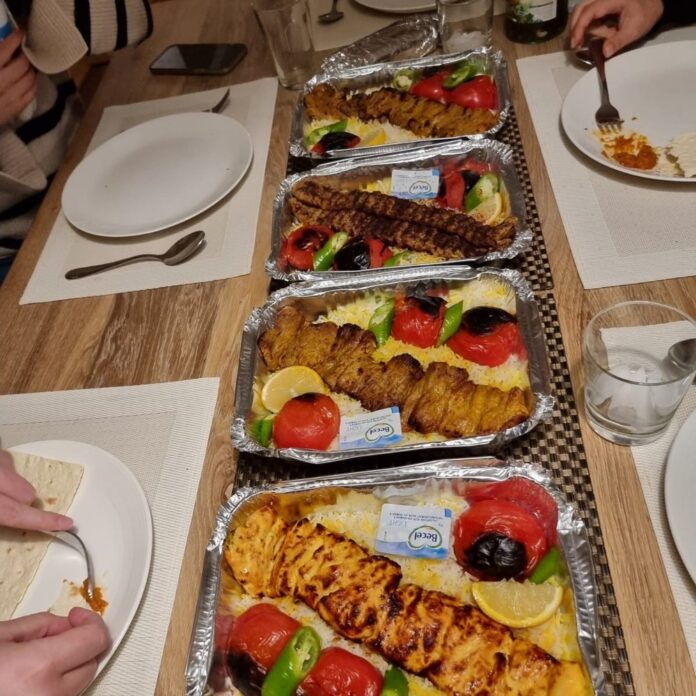A Gastronomic Symphony in The Hague
For years, Den Haag has become an international hub, where different cultures knock on each other’s door and create all kinds of influences. The Indian vegetarian restaurants that are sprouting up in any direction in the metropolis are nowhere more delightfully expressed than in its burgeoning Indian vegetarian restaurant scene. Although, with the thriving demand for plant-based dining options, Den Haag has become a culinary trailblazer, featuring an extensive lineup of places in which Indian flavours seamlessly combine with Dutch hospitality values. The result is a harmonious blend of dining experiences that appeals to both the purists of the culinary world and those hungering for authentic vegetarian Indian cuisine in the heart of this diplomatic capital.
The Rising Tide of Vegetarianism in Dutch Culture
Ten years ago, the Netherlands saw a shift in plant-based eaters towards a vegetarian lifestyle that went from a niche to a mainstream eating trend. Culturally, this has all been preparing the ground for the growth of Indian restaurant Den Haag. With its rich, centuries-old, mostly vegetarian heritage in traditional Indian cuisine, there is a natural answer to the growth of Dutch taste for meat-free food without sacrificing flavour and satisfaction. Local restaurateurs have seen that alignment of values, and they have created establishments honouring authentic Indian culinary traditions while bringing the Dutch focus on quality ingredients, sustainability, and transparent food sourcing.
Spices as Cultural Ambassadors
Entry to any Indian restaurant in Den Haag is met with the aromatic symphony that recounts the story of cultural exchange that has been going on for centuries. Dutch diners are introduced to India’s wealth of culinary heritage through the careful balancing of cinnamon and cardamom to turmeric and fenugreek in these complicated spice blends. The bold spice combinations feel like spice combinations more akin to those that we traditionally associate with Dutch cuisine but different from ones that I have seen elsewhere. Yet local chefs have masterfully adapted traditional Indian recipes to honour local palates, creating a harmonious balance that respects both culinary traditions while introducing diners to new dimensions of flavour complexity.
The Art of Vegetarian Mastery
The most incredible part about the vegetarian restaurant Den Haag, however, is the sheer creativity behind creating any sort of culinary masterpiece from humble plant ingredients. Perfectly prepared dal makhani or vegetable biryani does not lack flavour or satisfaction. Vegetarian cuisine, as these establishments show, is a cuisine with no compromise in either. Dutch vegetables seasonally undergo a transformation, put together in various Indian cooking techniques, while the same goes for traditional Indian items such as paneer and chickpeas, well prepared and beautifully presented. The product is a cuisine that honours the diversity of the plant kingdom and fans of even the most finicky carnivorous appetite.
A Tale of Two Culinary Philosophies
And at the core of it is a fascinating mingling of the two culinary philosophies. Traditional Dutch food believes in simple preparation methods that render the fresh ingredients themselves. Conversely, Indian cuisine often uses very complex spice blends and cooking techniques that take ingredients to a place they wouldn’t ever be without a great deal of additional work. Bring these solutions together in Den Haag’s vegetarian Indian restaurants, and the dishes are simply reeked — they are dishes that respect the integrity of our fresh, local ingredients, brightened by skilled spice combinations and the old-school cooking methods handed down from generation to generation.
Beyond Food: The Cultural Experience
When you dine at an Indian vegetarian restaurant in Den Haag, you have a multisensory cultural experience; the food serves as the first of many examples. Once guests set foot in, they pass through interiors characterized by seamlessly blending Indian decorative elements with Dutch design sensibilities. Cultural guide staff members explain unfamiliar dishes to them and customize the spice level to suit their personal taste. All of this is taken to the next level with background music, aromatic environments and actual serving vessels. However, many establishments not only enhance this cultural exchange, but many more establishments go the extra mile to host special events, cooking classes and seasonal celebrations where diners can get a better knowhow about India’s rich culinary heritage.
A Sustainable Approach to Global Cuisine
Perhaps the most significant area where Dutch values have influenced Indian vegetarian restaurants in Den Haag is in their commitment to sustainability. Many establishments have embraced local sourcing practices, forming partnerships with nearby farms to procure fresh produce while reducing their carbon footprint. Traditional Indian cooking methods that emphasize whole ingredients and minimal waste align perfectly with Dutch environmental consciousness. This shared commitment to planetary health represents the most meaningful convergence of these culinary traditions—a mutual recognition that gastronomic excellence need not come at environmental expense and that truly great dining experiences nourish both body and conscience.
